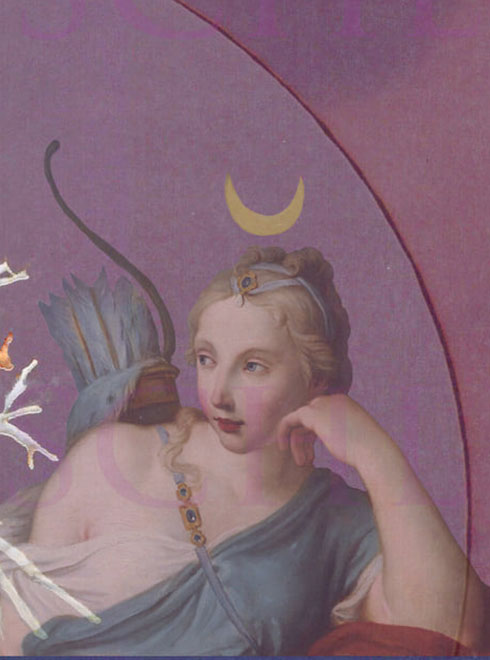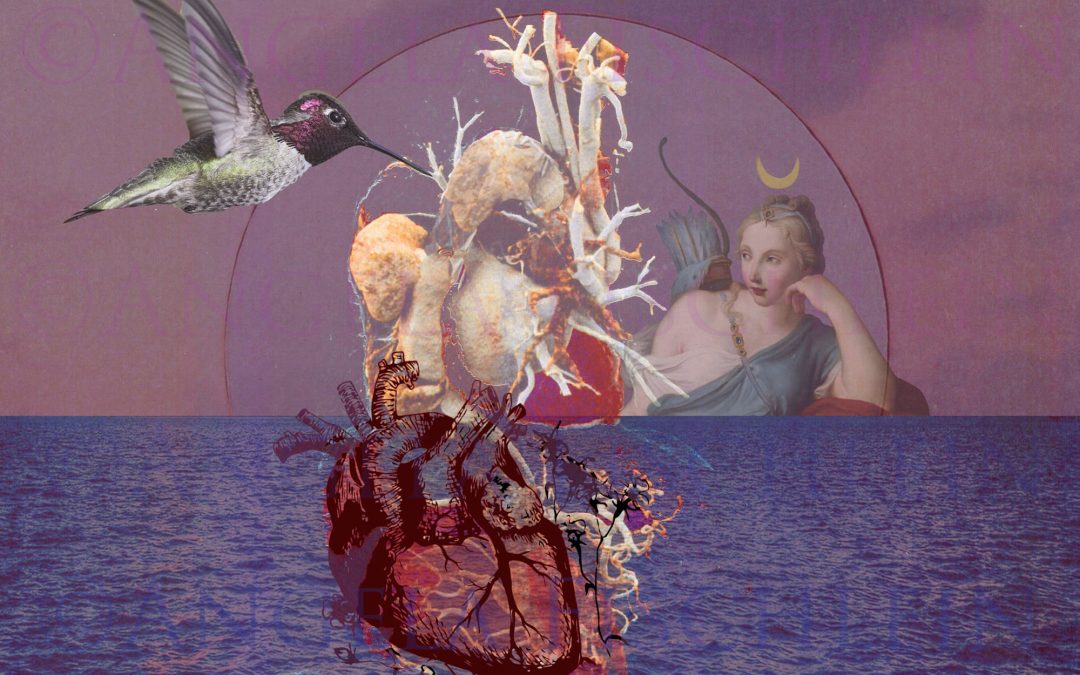Artemis was worshipped by the Greeks primarily as the goddess of hunting, forests, and the moon, though she was also viewed as a patron saint of women and children as well. She kept an eye on all roads and their wanderers, as well as all water bodies and ships. Additionally, the goddess Artemis was the guardian of trade and all other transformative changes. Through her connection to nature and animals, she found her home in wild and flowering meadows.
The virgin goddess Artemis was one of the twelve gods of Olympus. These are Zeus, Poseidon, Hera, Demeter, Apollo, Athena, Ares, Aphrodite, Hermes, Hephaestus, Hestia and Artemis. Her constant companions include the arrow and the silver bow equipped with great accuracy; other distinguishing features include wormwood and cypress.
Artemis and her twin brother Apollo are described in the lore of the Greek poet Hesiod as the children of Zeus and one of his mistresses, the Titaness Leto. In her jealousy, Zeus’ wife Hera chased and cursed the pregnant Leto, preventing her from finding a suitable place to give birth to their children. After many other gods and goddesses of Olympus stood by Leto, Poseidon created the island of Delos for her to give birth on.

As the first-born, Artemis assisted her mother in the birth of her younger brother Apollon as soon as she was born. As a result, Artemis was invoked as the tutelary goddess of childbirth from that point forward. The first-born Artemis represents the moon’s feminine power, while Apollon stands for the sun’s male power.
From today’s perspective, Artemis is considered the goddess of freedom and self-determination. Artemis is guided by her heart alone; she is an independent goddess. Artemis carries the driving energy and clarity that are necessary for making clear and objective decisions. In some cases, one may also have to establish and demand clear boundaries and demarcations for oneself, even to the chagrin of others.
From today’s perspective, Artemis is considered the goddess of freedom and self-determination. Artemis is guided by her heart alone; she is an independent goddess. Artemis carries the driving energy and clarity that are necessary for making clear and objective decisions. In some cases, one may also have to establish and demand clear boundaries and demarcations for oneself, even to the chagrin of others.
Legend has it that Artemis, like all gods and goddesses of Olympus, also has a dark side, which led her to take cruel revenge. In retaliation, she was willing to kill others for her revenge and met arrogance and ridicule with harshness. For us today, that would mean encountering the dark side in us when we encounter mockery, scorn, devaluation, or any border crossing.
Sacred animals for Artemis are the stag and the bear, and she also feels deeply connected to the ibex and deer. Associated with fertility and growth, she is the goddess of nature and the tides. In nature, Artemis is associated with spring, when life begins anew. „Since every beginning carries a magic that protects us and helps us to live“ – loosely based on Hesse 1), Artemis is also perceived as the goddess of magic, who carries within her the magic of change and becoming.
1) Stages, Hermann Hesse from the book “The Glass Bead Game”
